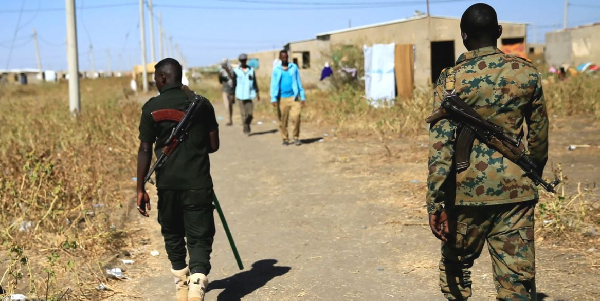
ADDIS ABABA/KHARTOUM, Sept 14 (NNN-AGENCIES) — Ethiopia and Sudan may have delayed solving a border dispute between them as they faced domestic woes including conflict.
Yet this dispute is one of the most complex and long-standing issues shaping relations between the two neighbouring states. The conflict centres around the Al-Fashaga region in Sudan’s Gedaref State, a stretch of fertile agricultural land exceeding one million acres.
For decades, this land has been a theater of population overlaps, agricultural competition, and recurring violence—turning what could have been a zone of prosperity into a hotspot of tension.
The story dates back to a 1902 treaty signed between the United Kingdom, the colonial authority in Sudan, and Emperor Menelik II of Ethiopia. While the treaty defined the borders on paper, it was never fully demarcated on the ground.
The absence of practical implementation allowed Ethiopian farmers, often backed by local militias, to gradually expand into Al-Fashaga. Since Sudan’s independence in 1956, this lack of tangible border demarcation has been a recurring source of friction.
Sudan grounds its legal claim in the 1902 Treaty and the 1903 MacMichael Protocols, both of which provide it with internationally recognised legitimacy over Al-Fashaga.
Ethiopia, however, challenges these agreements, arguing they were signed under colonial circumstances and did not adequately reflect Ethiopian interests. This divergence in legal interpretations has sustained the dispute for over a century.
In the 1970s, then Sudanese President Jaafar Nimeiri and Emperor Haile Selassie reached a deal to demarcate the border according to the 1902 lines. Yet, the deal was never fully implemented.
Joint committees in the 1990s and early 2000s produced technical proposals but also failed to translate them into binding action.
On the ground, informal arrangements took root, allowing Ethiopian farmers to cultivate land in Al-Fashaga in return for partnerships or fees. While this eased tensions temporarily, it left the core dispute unresolved.
The outbreak of the Tigray war in Ethiopia in late 2020 created an opening for Sudan’s military. Seizing the moment, the Sudanese Armed Forces reasserted control over large portions of Al-Fashaga that had been under Ethiopian influence for decades.
This shift altered the balance of power on the ground and triggered direct clashes between the two armies, placing the border dispute at the forefront of Sudan-Ethiopia relations once again.
Al-Fashaga is not merely a strip of contested territory—it is an economic lifeline. The region has the potential to serve as a breadbasket for Sudan, producing sesame, sorghum, and oilseeds at a time when the country faces acute food insecurity due to the ongoing war.
Conversely, for Ethiopia, particularly the Amhara farmers who rely on Al-Fashaga’s fertile soil, the land represents a vital source of livelihoods.
This makes the dispute not only about sovereignty but also about food security and survival for communities on both sides.
The border conflict cannot be separated from broader regional dynamics, especially the Grand Ethiopian Renaissance Dam (Gerd). Ethiopia occasionally leverages the border issue as a bargaining chip in its negotiations with Sudan, while Sudan, in turn, uses its territorial claims to reinforce its regional stance on Nile water politics.
Egypt, too, has a vested interest in the stability of the Sudan-Ethiopia border, as renewed conflict could open another front of instability in the already fragile Horn of Africa.
Regional organisations such as the African Union and the Intergovernmental Authority on Development (IGAD) have attempted to mediate, but their efforts have largely been limited to calls for dialogue and de-escalation, without producing any lasting resolution.
Behind the headlines, ordinary farmers remain the most vulnerable stakeholders. Their lives are caught between politics and geography: harvests disrupted by violence, villages overshadowed by military checkpoints, and roads that once facilitated trade now function as lines of confrontation. For these communities, Al-Fashaga is not a diplomatic file but a question of daily survival and dignity.
Adding to the complexity is the presence of armed militias along the border. Often operating beyond the full control of either government, these groups contribute to instability and heighten the risk of sudden escalation.
As of 2025, the dispute remains far from resolved. — NNN-AGENCIES
